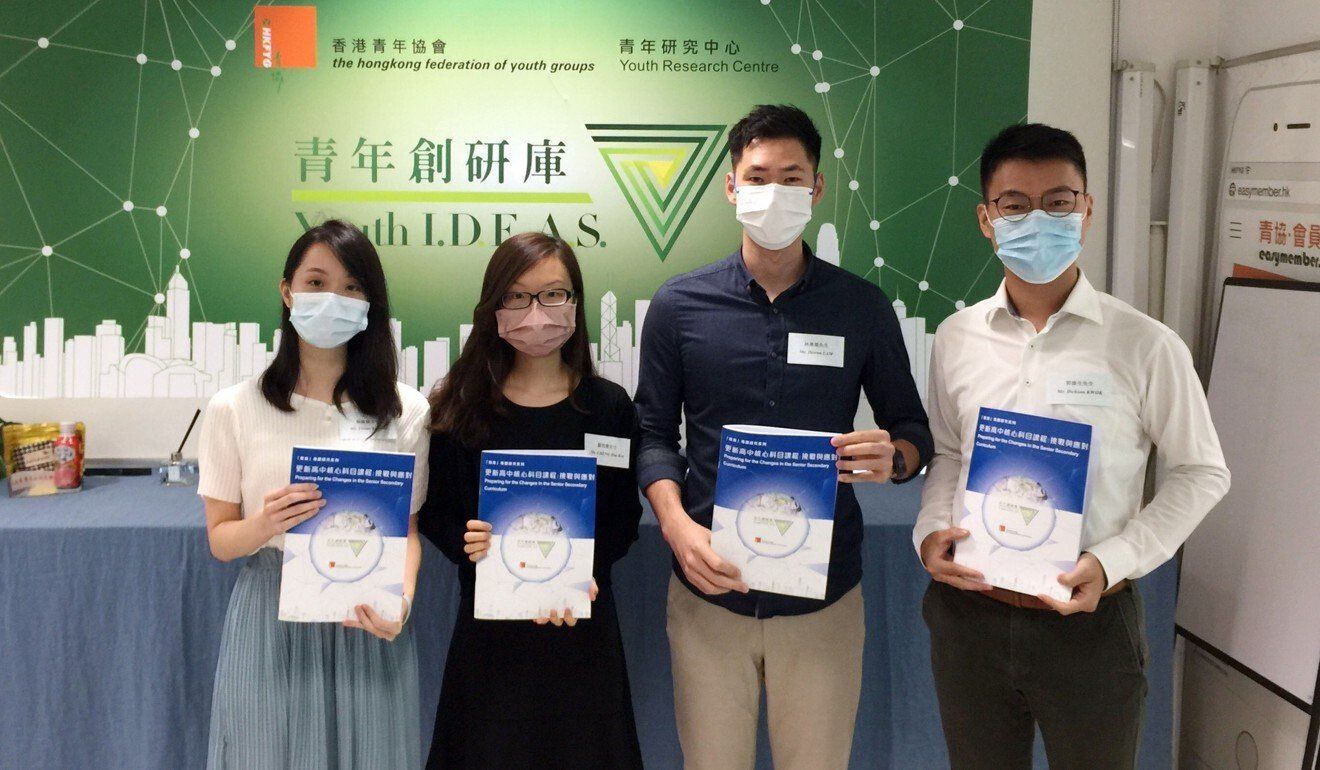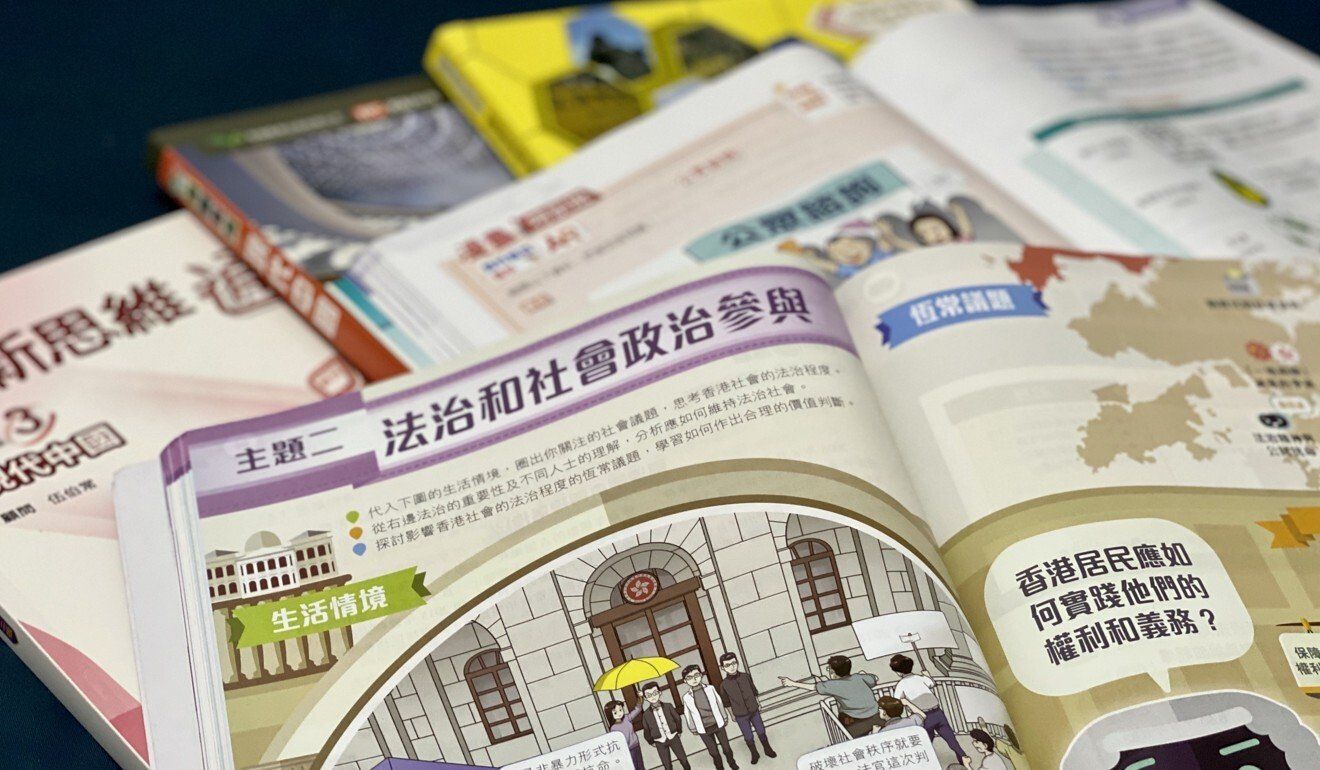Hong Kong News

Hong Kong liberal studies teachers need more guidance, materials: think tank
Officials need to provide more reference materials for Hong Kong educators stressed at the prospect of teaching the newly revamped liberal studies subject in the new school year, according to a policy research body.
The Youth Ideas think tank, under the Hong Kong Federation of Youth Groups, also found in its latest survey that secondary school students were largely uninterested in two of the key themes under the newly renamed “citizenship and social development” subject – namely “Hong Kong under ‘one country, two systems’” and “our country since reform and opening up”.
There was slightly more enthusiasm for the remaining theme – “interconnectedness and interdependence of the contemporary world” – but not much.
Dickson Kwok Tat-sang, a teacher and member of Youth Ideas, said that while education authorities had issued some documents and assessment criteria on the revamped subject, educators still needed more support.
“Our society has changed rapidly, so apart from clear guidelines, teachers also need materials, teaching schemes and learning packs to implement the subject effectively,” he said.
First introduced in 2009 as one of four core subjects for senior secondary school students in a major curriculum shake-up, liberal studies aimed to enhance pupils’ social awareness and develop their critical thinking skills.
But after the pro-Beijing camp blamed the subject for radicalising youth during the 2019 anti-government protests, the Education Bureau overhauled it earlier this year to focus on national development and patriotism, which account for more than a third of the adjusted syllabus.
The overhauled course will be taught to pupils for the first time this September, with the first Diploma of Secondary Education exam in the subject slated for 2024.
The bureau also rolled out a series of changes to the other three core subjects, Chinese and English languages, and mathematics.
 Think tank members (left to right) Vivian Yeung, Cheng Hui-kiu, Derren Lam and Dickson Kwok present their findings on Sunday.
Think tank members (left to right) Vivian Yeung, Cheng Hui-kiu, Derren Lam and Dickson Kwok present their findings on Sunday.
Analysts have said the changes, along with low vaccination rates, will be the main challenges faced by teachers and students when the new school year begins on Wednesday. Most, if not all, Hong Kong schools are unlikely to be able to hold full-day classes when the new term begins, as almost none have reached the 70 per cent vaccination rate for students and teachers required for doing so.
Youth Ideas polled 975 students and 395 teachers in June and July about various changes, including 96 educators who headed their schools’ liberal studies departments.
On a scale of 0 to 10, the liberal studies teachers rated their stress level at 7.97. That compared with 6.07, 5.99 and 4.77 for their English, Chinese and maths colleagues, respectively.
The liberal studies teachers said their top challenges were figuring out how to teach the subject without a detailed curriculum or textbooks, a lack of preparation time and confusion over the assessment criteria.
Asked if the revamp might weaken pupils’ ability to analyse issues from different angles, 74 per cent said it would.
About 73 per cent said the “Hong Kong under one country, two systems” theme would be the hardest to teach, while 22 per cent said “our country since reform and opening up” would be the most difficult.
Meanwhile, more than 900 students in Forms One through Three were asked to rate on a scale of 0 to 10 whether they looked forward to studying the three themes under the revamped subject, and taking part in mainland China study tours that schools would be encouraged to organise after the pandemic.
The “one country, two systems” and “our country since reform” themes scored a lacklustre 4.37 and 4.2, respectively, while mainland tours clocked in at 4.34.
“Interconnectedness and interdependence of the contemporary world” proved slightly more popular, with a score of 5.71.
 A lack of teaching materials in the newly revamped subject was cited as a main source of stress by teachers.
A lack of teaching materials in the newly revamped subject was cited as a main source of stress by teachers.
Kwok allowed that students might lack interest because they knew little about the topics yet, but said the teachers’ concerns were alarming.
“They need to be cautious in choosing teaching materials,” he said. “When they still don’t have any approved textbooks on hand, it is normal for them to be very worried.”
Lin Chun-pong, chairman of the Hong Kong Association of the Heads of Secondary Schools, told a radio programme on Sunday that based on some fundamental references provided by the Education Bureau, teachers had tailor-made their own materials to cater for pupils with different learning capabilities, while verifying the accuracy of information on newspaper cuttings and reference books. Lin hoped the bureau could be more supportive.
A bureau spokesman said it had been creating teaching material for schools to use, including worksheets, online self-learning modules, and information kits for teachers. The bureau also organised a series of seminars, and would be hosting training courses to make sure that teachers knew how to teach the subject.
The spokesman said it was unfair of the think tank to survey Form One to Three students, and to suggest pupils were not interested in the subject.
Schools currently have to rely on the bureau and their own limited teaching materials, as publishers’ first batch of citizenship and social development textbooks will only be vetted by the government in November.
Derren Lam Wai-yip, deputy convenor of Youth Ideas’ education group, said more promotion and explanation were needed to help society understand the rationale behind the revamp.
“The examination authority also needs to issue more assessment criteria and samples for the reformed subjects to boost teachers’ confidence as they face changes,” he added.











